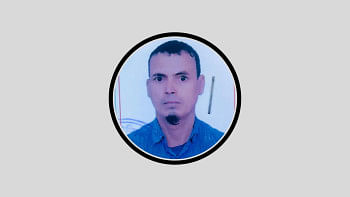Isolation and solitude: Life in the time of corona

It has only been a month of isolation, yet it feels like "One hundred years of solitude". Of course, there are no commonalities between Garcia Marquez's magical fantasy and the harsh times we are living through. For what has happened to our lives is neither fantasy nor magical. It's too real and too horrific.
After the initial shock of how the Covid-19 pandemic literally pushed our lives to a standstill, I started reflecting on the many ways it has affected our psyche, and how it could change us in the future. Whether we believe in a higher power or the laws of Mother Nature, the truth is that we have destroyed the balance of our universe. We pushed its limits to a breaking point. Be it climate change, economic inequity or social injustice, we humans have pushed the parameters of these indicators to unacceptable levels. Nature has retaliated through a virus—the smallest of all organisms, yet so fierce and deadly! It has not only attacked the human race with a lethal disease but has resulted in stock markets tumbling, businesses becoming bankrupt and millions losing their jobs and income.
One of the most serious consequences has been social isolation. Now that we are barred from direct contact, we are beginning to appreciate the importance of touching and feeling the warmth of our dear ones. The experience has given many of us a different perspective on love. When I was advised that as a member of the vulnerable age group, I shouldn't touch my grandchildren, I was filled with regrets about all the precious time I spent inquiring about their school progress, the status of their piano lessons and disciplining their behaviour. All I want now is to give each one a kiss and tell them how much I love them. Living through the harsh reality of terms like social distancing, self quarantine and total lockdown, I am gradually beginning to fathom how meaningless life becomes without the laughter and chatter of friends, the moments of sharing our joy and the close proximity of family.
Despite all the fear, panic and the damage caused by coronavirus, it has taught us the most important truth about life: that it matters little whether you are rich or poor, what colour or race you are or if you are the most powerful person in the country. The virus has been an equaliser shattering artificial borders of income, class, religion, ethnicity and nationality. At the blink of an eye it has leveled humanity to a common denominator—the healthy vs those who are infected.
At a personal level, the outbreak has reminded me once more of the fragility and unpredictability of life. It is so easy to be swept away by material comforts and become callous toward the less fortunate and we tend to forget that we cannot take anything for granted. When I was locked up under a curfew and then confined to becoming a refugee in Kolkata during the Bangladesh Liberation War, I promised myself that if life returned to a "normal" pace, I would spend more time with my loved ones, show more compassion to the less fortunate and consciously involve myself in activities to help the sick, the poor and the desolate. Sadly, my resolution lasted only a few years and here I am surrounded by material comforts and rarely do I devote time to change the lives of those who need nurturing and care. Such is human nature—we are hardwired to lose our perspective amid the daily glitter and glamour of life. Hence, like many, I am once again faced with the reality of making some hard decisions about my future, only if I survive this scourge. Millions who have lost their livelihoods are feeling the sting of not knowing how they will survive without an income and for some, even the next meal for their families has become an uncertainty. Will I rise to the challenge and learn to share and care this time? Only time will tell.
Let us take a cue from the people who are making great sacrifices even as I write this column. Yes, I mean the scores of healthcare professionals who are working tirelessly in the face of grave personal risk and without proper protective equipment to treat the sick in overflowing hospitals. And the brave young women and men who have volunteered to be guinea pigs for "untested" vaccines, risking their lives. There are also those who are delivering food and medicine to the elderly and other vulnerable groups.
In an era when thinking about oneself is the norm, the pandemic sends us a resounding message: we are all interconnected. One sick person means that all of mankind could be affected physically and even emotionally. Interestingly, spiritual leaders—like Buddha or the Sufis—emphasised this aspect of our existence. That each one of us is but a small part of the whole and there is but one life source. Whatever our religious beliefs, we are gradually beginning to understand that the only way to get out of this is to think of ourselves as a part of something greater. This is the defining moment when we can rise together or sink together. An individual's action can affect the entire community. It is only love, compassion and respect for each other that will sustain us through these hard times. It may in fact be the only recourse for the future of mankind.
I began my column with a reference to Garcia Marquez. Let me end with his famous quote: "The only regret I will have in dying is if it is not for love."
Milia Ali is a Rabindra Sangeet exponent and a former employee of the World Bank.

 For all latest news, follow The Daily Star's Google News channel.
For all latest news, follow The Daily Star's Google News channel. 



Comments